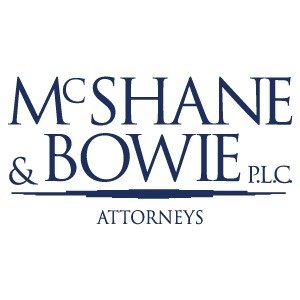Best Nonprofit & Charitable Organizations Lawyers in Grand Rapids
Share your needs with us, get contacted by law firms.
Free. Takes 2 min.
List of the best lawyers in Grand Rapids, United States
About Nonprofit & Charitable Organizations Law in Grand Rapids, United States
Nonprofit and charitable organizations in Grand Rapids, United States are entities established to serve the public good, without the intention of distributing profits to members or directors. These organizations are often involved in various activities, including education, religious activities, social services, and community development. Nonprofits in Grand Rapids can be structured as charitable trusts, unincorporated nonprofit associations, or nonprofit corporations, each subject to specific regulatory standards, including state registration and federal tax exemption requirements.
Why You May Need a Lawyer
Legal help for nonprofit and charitable organizations can be crucial for several reasons. Starting a nonprofit involves complex legal processes, including incorporation, drafting bylaws, and applying for tax-exempt status with the IRS. Once established, nonprofits need legal guidance to comply with state and federal regulations, manage board governance issues, handle donations and grants, and navigate employment law. Additionally, organizations may require legal assistance in conflict resolution, mergers, or dissolution.
Local Laws Overview
Grand Rapids, being part of Michigan, requires nonprofit organizations to adhere to both state and local regulations. Nonprofits must register with the Michigan Attorney General's office and obtain a Certificate of Authority if soliciting donations. They are also subject to Michigan's Nonprofit Corporation Act, which outlines governance requirements, including board responsibilities and annual reporting. Additionally, zoning laws and local grant opportunities may affect nonprofit operations specific to Grand Rapids.
Frequently Asked Questions
What is the first step to starting a nonprofit in Grand Rapids?
The first step is to define your mission, then incorporate your nonprofit with the Michigan Department of Licensing and Regulatory Affairs (LARA).
Do all nonprofits in Grand Rapids need to apply for 501(c)(3) status?
Not all, but obtaining 501(c)(3) status from the IRS is essential for most nonprofits to be tax-exempt and eligible to receive tax-deductible contributions.
Are there ongoing filing requirements for nonprofits in Grand Rapids?
Yes, nonprofits must file annual reports with LARA, and submit financial statements to the Michigan Attorney General if soliciting donations.
Can a nonprofit organization engage in political activities?
Nonprofits can engage in limited lobbying activities, but cannot participate in political campaigning for or against any candidate.
What are the consequences of not complying with Michigan state laws for nonprofits?
Failure to comply can result in fines, loss of tax-exempt status, and potential dissolution of the nonprofit entity.
How are nonprofit directors compensated in Grand Rapids?
Directors of nonprofit organizations typically serve without compensation, although they may be reimbursed for expenses incurred while performing board duties.
Is liability insurance necessary for a nonprofit in Grand Rapids?
While not legally required, liability insurance is recommended to protect the organization and its board members against potential legal claims.
What records do nonprofits need to maintain in Grand Rapids?
Nonprofits must keep financial records, meeting minutes, membership rolls, and records of significant decisions to ensure transparency and regulatory compliance.
Can a nonprofit be sued?
Yes, similar to other entities, nonprofits can be sued. Liability insurance and legal counsel help mitigate risks.
Where can I find funding for my nonprofit in Grand Rapids?
Funding can be attained through grants from local foundations, fundraising events, individual donations, and some government programs specific to Michigan.
Additional Resources
Several resources can assist nonprofits in Grand Rapids, including the Council of Michigan Foundations, the Michigan Nonprofit Association, and the Grand Rapids Community Foundation. Governmental bodies like the Michigan Attorney General's Charitable Trust Section and the Internal Revenue Service (IRS) also offer guidance and oversight.
Next Steps
If you need legal assistance, consider consulting with a lawyer specializing in nonprofit law to help navigate the legal landscape in Grand Rapids. Start by researching local law firms or legal aid organizations that focus on nonprofit legal issues. Prepare any relevant documents or questions you might have ahead of your consultation to maximize the benefits of legal guidance.
Lawzana helps you find the best lawyers and law firms in Grand Rapids through a curated and pre-screened list of qualified legal professionals. Our platform offers rankings and detailed profiles of attorneys and law firms, allowing you to compare based on practice areas, including Nonprofit & Charitable Organizations, experience, and client feedback.
Each profile includes a description of the firm's areas of practice, client reviews, team members and partners, year of establishment, spoken languages, office locations, contact information, social media presence, and any published articles or resources. Most firms on our platform speak English and are experienced in both local and international legal matters.
Get a quote from top-rated law firms in Grand Rapids, United States — quickly, securely, and without unnecessary hassle.
Disclaimer:
The information provided on this page is for general informational purposes only and does not constitute legal advice. While we strive to ensure the accuracy and relevance of the content, legal information may change over time, and interpretations of the law can vary. You should always consult with a qualified legal professional for advice specific to your situation.
We disclaim all liability for actions taken or not taken based on the content of this page. If you believe any information is incorrect or outdated, please contact us, and we will review and update it where appropriate.











